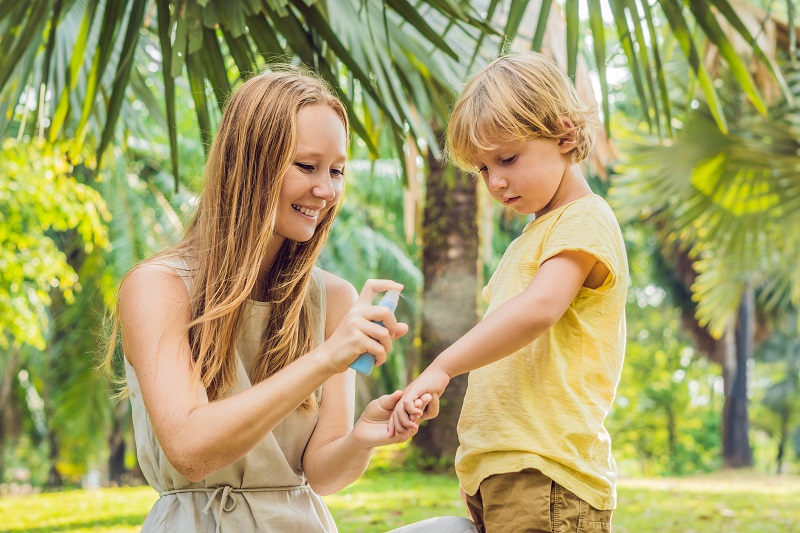Keep Kids Safe While Keeping the Bugs Off
Summer in Minnesota means the outdoors. The outdoors means mosquitoes. And mosquitoes mean bug spray. But depending on how old your children are, certain kinds of bug spray may not be appropriate.
Before heading outside this summer, here are some rules to remember about some of the common repellents:
DEET
- DEET is very effective and safe, if used properly, for babies and kids over 2 months of age.
- The American Academy of Pediatrics recommends repellents containing between 10 percent DEET (reapply about every 2 hours) to 30 percent DEET (reapply about every 5 hours). Bug sprays with more than 30 percent DEET don’t offer any extra protection.
- Products containing both sunscreen and DEET aren’t recommended because sunscreen needs to be reapplied more often than DEET.
Repellents made of essential oils
- A number of repellents are made from essential oils. Examples include citronella, cedar, eucalyptus, and soybean. There is the potential for allergic reactions when using these products. So watch your kids after applying to make sure they don’t develop rashes, hives or irritated skin.
- To keep the bugs off, these will need to be reapplied every two hours.
Using permethrin
- Chemical repellents using permethrin can be applied to clothing and offers protection, even after several washings.
- Permethrin should ONLY be applied to clothing or outdoor equipment – such as sleeping bags or tents. It SHOULD NOT be applied directly to skin.
For DEET and essential-oil based repellents, be mindful not to spray directly onto anyone’s face. Spray it on your hands first, and then rub it on your face. Don’t spray onto cuts, wounds or irritated skin either.
If you suspect your child skin is having a reaction to bug spray, wash it off with soap and water. If the repellent is swallowed, call Poison Control at 1-800-222-1222.
Learn more how to protect your children from insect bites from healthychildren.org – the parenting website of the American Academy of Pediatrics.
